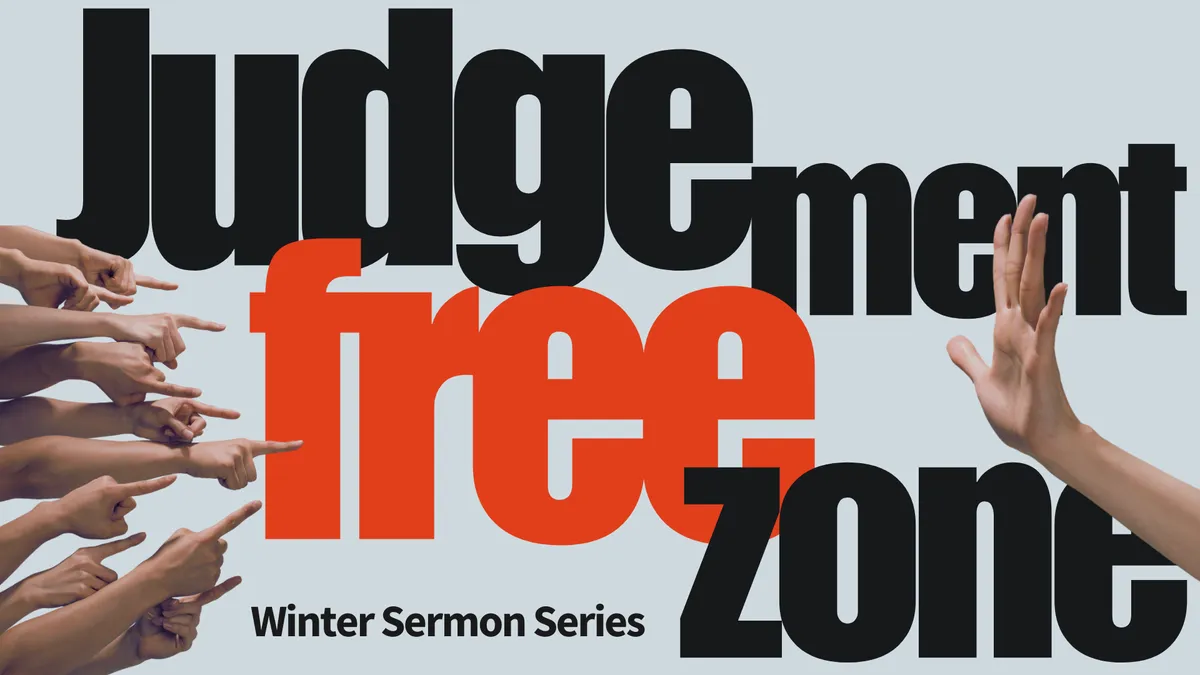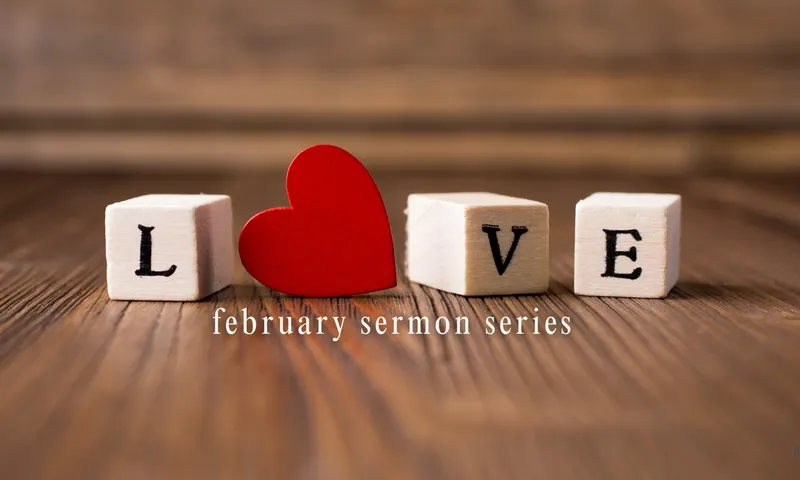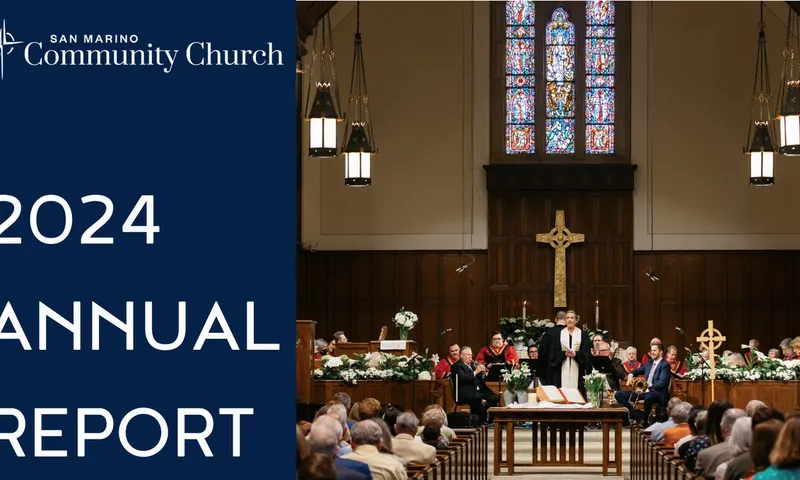Judgement Free Zone: Small Group Resources

Look here for all your 'Go Deeper' Resources in our Judgement Free Zone Sermon Series

A digital version of our Judgement Free Zone companion guide can be viewed or downloaded by clicking here.
Week 1 | When God Judges
Scripture: Isaiah 11:1-5 (MSG)
This Week's Go Deeper Resource: "God Does Not Love Us If We Change, God Loves Us So That We Can Change" from Richard Rohr's Yes, And...: Daily Meditations
“Those who pray learn to favor and prefer God’s judgment over that of human beings. God always outdoes us in generosity and in receptivity. God is always more loving than the person who has loved us the most! All we can bring is today’s latest product, whatever it is, for a new dose of love. It will always be immature on some level. It will always be inadequate, but that is not the point. It is not the perfection of the gift, but the willingness to lovingly offer the gift, that pleases all parents and, surely, then, the Super Parent that some of us call God.
God does not lead the soul by shaming it, just as a good parent would not shame his or her child. It doesn’t work anyway. We have all done it at times and, if we were raised in a punitive way ourselves, we still tend to think that is the way to motivate people—by shaming them or making them feel guilty. I’ve done it enough and I've received it enough to know that it eventually backfires. It never works. We close down and stop trusting after that, and we use all kinds of defense mechanisms to avoid further vulnerability. God’s way actually works—to love us at even-deeper levels than we can know or love ourselves. It really is quite wonderful, and one wonders why anyone would want to miss out on this.”
Go Deeper Questions:
- Why is it so hard for us to trust God’s judgment?
- What do we stand to gain or lose by trusting God’s judgment?
Week 2 | Pots and Kettles
Scripture: Matthew 7:1-5
This Week's Go Deeper Resource: "What Matthew 7:1-5 (Judge Not Lest Ye Be Judged) Means: Explore Jesus' Instruction About Judging Others" from Dr. Tamara Knudson and the BibleProject Scholarship Team
“The word “judge” in Matthew 7:1 comes from the Greek word krino, which can mean to discern or decide. But it can also refer to condemnation, either in a legal court setting or in our day-to-day relationships. Paying attention to context will help us know what the author means. Is Jesus saying “Do not be discerning” or “Do not be condemning”?
Here’s the BibleProject translation of the whole command in Matthew 7:1-2: “Do not judge (krino), so that you will not be judged (krino). Because with the judgment (krino) that you judge (krino), you will be judged (krino). And with the measure that you measure, it will be measured to you.” Immediately following this instruction, Jesus tells listeners how to approach someone who is behaving poorly (Matt. 7:3-6). And not long after that, he says that we can discern the true character of people by observing the kind of fruit they bear (Matt. 7:15-20).
During his time on Earth, Jesus lived what he taught, and he regularly (and rather assertively) addressed people’s harmful choices. So it wouldn’t make sense for him to prohibit us from using discernment in our relationships or the world at large. Instead, in this context, Jesus uses krino to refer to condemning others, or treating them with judgmental contempt. He’s talking about the times we decide another person doesn’t measure up, so we look down on them or think of them as a lesser person…
The Golden Rule helps us follow through on God’s greatest command—to love God and love all others with everything we’ve got. When Jesus says, “Judge not, lest ye be judged,” he’s not saying that all judgment is always wrong. He’s calling people to a new and better way of relating with one another. Instead of judgmentally condemning or looking down on each other, we can operate with the power of divine mercy that heals what is broken (rather than simply hating it). With Jesus, we can practice the Golden Rule, approaching others with the same dignity and respectful love that we also hope to receive.”
Go Deeper Questions:
- If we think about “do not judge” as a prohibition of “judgmental contempt” as opposed to “using discernment in our relationships and the world at large,” what changes for you in this passage?
- How might we walk this line between judgmental contempt and discernment? How does love help us navigate this?
Week 3 |
Scripture: John 8:1-11
This Week's Go Deeper Resource: Excerpts from MLK Jr.'s sermon titled "The Drum Major Instinct" in A Testament of Hope: The Essential Writings of Martin Luther King Jr.
“There comes a time that the drum major instinct can become destructive. And that’s where I want to move now. I want to move to the point of saying that if this instinct is not harnessed, it becomes a very dangerous, pernicious instinct. For instance, if it isn’t harnessed, it causes one’s personality to become distorted… you will end up day in and day out trying to deal with your ego problem by boasting…
And then the final great tragedy of the distorted personality is the fact that when one fails to harness this instinct, he ends by trying to push others down in order to push himself up. And whenever you do that, you engage in some of the most vicious activities. You will spread evil, vicious, lying gossip on people because you are trying to pull them down in order to push yourself up.
And the great issue of life is to harness the drum major instinct.
Now the other problem is when you don’t harness the drum major instinct, this uncontrolled aspect of it, is that it leads to a snobbish exclusivism… The danger is that they can become forces of classism and exclusivism where somehow you get a degree of satisfaction because you are in something exclusive… And you know, that can happen with the church. I’ve known churches get in that bind sometimes… And any church that violates the ‘whosoever will, let him come’ doctrine is a dead, cold church, and nothing but a little social club with a thin veneer of religiosity.”
Go Deeper Questions:
- What are the dangers of letting our drum major instinct run wild in the Church and in our communities?
- The drum major instinct can drive us to self-righteousness, which makes it easier for us to jump to conclusions about other people—to judge them for their actions, beliefs, or even their identities. Looking back at John 8:1-11, what is the antidote that Jesus offers the religious leaders for their self-righteous judgmentalism?
Week 4 | Not So Fast
Scripture: 1 Corinthians 4:5
This Week's Go Deeper Resource: Tom (N.T.) Wright's Simply Christian
“The belief in heaven and earth as quasi-independent but mysteriously overlapping spheres goes a long way to explaining several otherwise puzzling things in ancient Israelite and early Christian thought and life. Take creation itself, coupled with the notion of God’s action in the world.
For the pantheist, God and the world are basically the same thing: the world is, if you like, God’s self-expression. For the Deist, the world may indeed have been made by God or the gods, but there is now no contact between divine and human. The Deist God would not dream of ‘inventing’ within the created order; to do so would be untidy, a kind of category mistake. But for the ancient Israelite, and the early Christian, the creation of the world was the free outpouring of God’s powerful love. The one true God made a world that was other than himself, because that is what love delights to do. And having made such a wonderful world, he has remained in a close, dynamic and intimate relationship with it, without in any way being contained within it or having it contained within himself. To speak of God’s action in the world, of heaven’s action (if you like) on earth—and Christians speak of this every time they say the Lord’s Prayer—is to speak not of an awkward metaphysical blunder, nor of a ‘miracle’ in the sense of a random invasion of earth by alien (‘supernatural’?) forces, but to speak of the loving creator acting within the creation which has never lacked the signs of his presence.”
Go Deeper Questions:
- Wright brings us three views of God’s involvement in the world: 1) Pantheism: God is all over the world (or panentheism: God is in everything in the world), 2) Deism: God created the world and went on vacation, God is detached from the world, or 3) The reality of God and the reality of earth overlap but remain somewhat distinct. In this third option, we see God show up. God intervenes on behalf of us, cares enough to pass judgment. God is not distant (Deism) nor wrapped up in every worldly thing (pantheists run into trouble when explaining the problem of evil).
- Why is it important to believe that God intervenes and passes judgment?
- How is God’s judgment an act of divine love?


